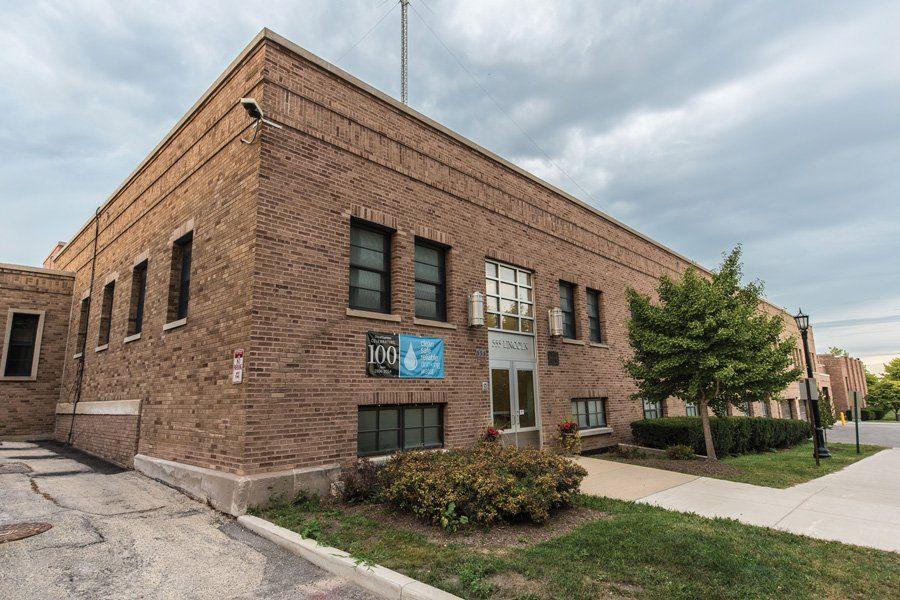City’s lawsuit against ComEd and Nicor over contaminants moves forward
(Daily File Photo Noah Frick-Alofs) The Evanston Water Plant is at the center of the city’s water system. The city is currently in a lawsuit with two companies over contaminants found in and near water pipes in southwest Evanston.
January 18, 2017
Evanston won a small victory on Tuesday in its lawsuit against ComEd and Nicor.
A federal judge ruled that five of the six motions the city had filed against the companies for materials found in southwest Evanston pipes were legitimate and could continue. Such materials can be dangerous at higher levels.
The lawsuit alleges ComEd and Nicor are responsible for recent contaminants found in southwest Evanston water. The city refiled the suit against ComEd, an electric utility company, and Nicor, a natural gas distributor, in May 2016 over materials found in water pipes.
In 2015, the city found black crust inside of a Dodge Avenue waterline, believed to be the same material as coal tar found at the Skokie Manufactured Gas Plant Site, which is just west of the city on Oakton Street and McCormick Boulevard.
City officials believe the materials, which are not harmful at the levels found in Evanston water, were brought to the area by gas lines last used in the mid-20th century. The lawsuit was refiled in May after an independent testing laboratory confirmed coal tar in places on water lines around James Park.
Recently, a group of residents in the area have organized to push the city to conduct extensive water testing in the area. Although the contaminants were found to be a non-toxic concentrations, James Parks Neighbors succeeded in their effort, and the city agreed in the fall to expand testing to numerous residential buildings around the park.
According to court documents, Judge John Z. Lee overruled the city’s claim that ComEd and Nicor broke a city ordinance concerning hazardous substances. In his opinion, Lee wrote the city had not convincingly argued Nicor and ComEd were responsible for a “threatened” or “sudden” release of a hazardous substance as the city ordinance describes.
City corporate counsel Grant Farrar said the count was shot down due to “technical issues” but Lee made it clear the city would be able to refile that count in future. According to information on the city’s website about the lawsuit, this count was the “least important” of the six filed.
The most important motion the city filed against the companies concerns a federal environmental statute regulating the treatment, storage and disposal of hazardous solid waste. The city is alleging Nicor and ComEd failed to properly handle the hazardous waste associated with the gas plant, presenting “imminent and substantial endangerment,” according to the lawsuit.
Farrar said he was hoping today’s decision would encourage ComEd and Nicor to consider settlement as an option rather than fighting it out in the courts.
“The judge has indicated to the parties that he believes the city of Evanston has viable causes of action against those two corporate entities,” he said. “The next step is whether those two corporate entities are going to be prepared to endure very intensive discovery and deposition or are going to act responsibly and start talking to the city about ways to address the issue in and around James Park.”
A spokesperson for Nicor said in a statement that an investigation by the company proved Nicor was not “the cause of the City’s concerns.”
Nicor intends to defend itself in court against the lawsuit, according to the statement.
“Nicor Gas and ComEd fully remediated the former gas plant under IEPA supervision,” the statement read. “Nicor Gas fully cooperated with the City of Evanston and investigated its concerns.”
Email: norashelly2019@u.northwestern.edu
Twitter: @noracshelly



